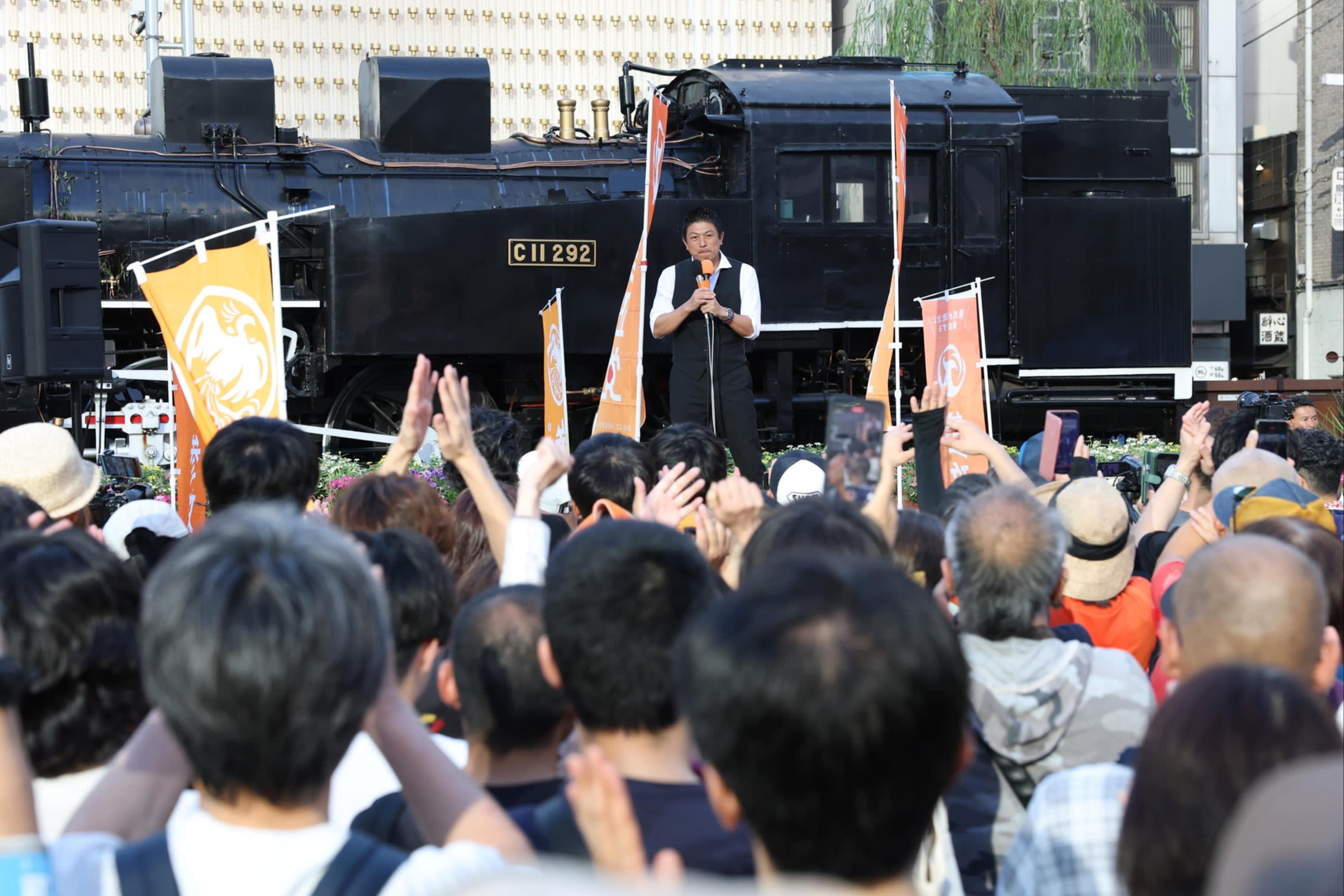Unlock the Editor’s Digest for free
Roula Khalaf, Editor of the FT, selects her favourite stories in this weekly newsletter.
Japan’s long-ruling Liberal Democratic party is a force led by “grandads” that could soon fall apart, the head of an ultraconservative, anti-globalist party that has set off tremors across Japan’s political landscape has said.
Sohei Kamiya, the combative 47-year-old secretary-general of the Sanseito party, dismissed the bloc that has governed Japan for almost 70 years just five days after Prime Minister Shigeru Ishiba resigned as leader of both the LDP and the country.
Ishiba’s announcement followed the LDP’s historic loss of outright control of both houses of parliament, and set in motion an internal leadership race next month that is expected to elevate Japan’s next prime minister.
“Whatever happens in the LDP’s leadership race, it is still a party headed by grandads, with an old-fashioned way of thinking,” Kamiya told the Financial Times. “What young people in Japan need most right now is a vision.”
He added that the next LDP leader would be “completely wrong” to expect Sanseito to join any coalition.

Sanseito, which was formed in 2020 and espouses extreme anti-immigration and anti-vaccine views, has mounted a ferocious attack on Japan’s traditional parties.
It has attracted a base of voters in their 30s and 40s, accusing the LDP of failing working Japanese by allowing wages to stagnate and inflation to flare, leaving young men economically unmarriageable.
It also claims the ruling party has stood by while ageing and shrinking Japan stumbles towards mass immigration, which Kamiya sees as having been catastrophic in the US and Europe.
“Our [immigrant] population hasn’t increased that much yet, so we want to prevent it from getting to that point,” he said. “We need to prepare now to avoid becoming a failure.”
Sanseito’s inflammatory populism and social media savvy have proved damaging to the staid LDP, which has pitched itself to generations of electorates as a vote for stability, balancing compromise between its liberal and conservative wings.
In Japan’s upper house election in July, Sanseito earned the third-highest total number of votes, a stunning showing that surpassed that of the largest opposition party and earned Kamiya’s party 15 seats, up from two previously.
While Sanseito’s parliamentary faction is small — the party also holds three seats in the more powerful lower house — Kamiya sees an opportunity in a general election that he expects to be called within the next 12 months, pointing to long-term vulnerabilities for the LDP.
“We need to make sure we solidify the votes of the younger generation,” he said. “[If] our message is delivered to people who resonate with our party’s principles and beliefs, we’ll win . . . There’s no need to go out of our way to attract the attention of older people.”
Fringe parties have historically vanished quickly after rising in Japan. But even if Sanseito’s appeal proved shortlived, said political analysts, its sudden success had already cast a shadow over the LDP’s leadership race.
The ruling party is now struggling to find a charismatic leader who can lure younger voters away from the populist messaging of Sanseito and others while convincing the party’s right wing that it has not forgotten older conservatives.
Kamiya, who praised US President Donald Trump’s “bold style” attributed Sanseito’s success in July to a “Japanese First” platform.
He is critical of shareholder capitalism, has frequently railed on social media against the “deep state” and argues that Tokyo should ultimately seek to acquire a nuclear weapon.
Senior party members have also spread conspiracy theories about the Covid-19 pandemic and criticised the promotion of gender equality.
A poster in Kamiya’s parliamentary office, written in brusque Japanese, bears the slogan “Don’t do Japan down!”, which he says refers to the risk of Japan being crushed by other economic powers.
But it also speaks to Japanese voters “who have given up on Japan’s future and think the country is doomed”.
The party’s “message to those people [is] not to give up”, said Kamiya. “Japan still has a lot to offer.”


